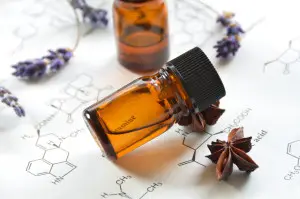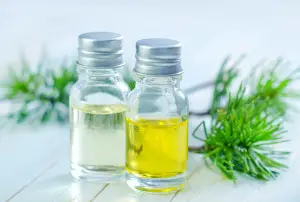Postpartum depression, and the debilitating symptoms that accompany it, can be a burden on the beginning stages of child rearing. The first few weeks and months of raising your child should be a magical experience. But the reality is, the effects of postpartum anxiety and depression are a real thing.
A quick disclaimer before we get rolling: While we are going to disclose some natural remedies that my wife used, we are not physicians so we are not offering specific treatments for these symptoms. Sorry, we have to throw that out there.
If you’re struggling with such unfortunate symptoms you’re certainly not alone. In fact, the statistics for postpartum depression – also known as “postnatal depression” – may come as quite the surprise. In documenting statistics on postpartum depression, according to the American Psychological Association:
- Somewhere between 9 and 16 percent of birthing women will undergo postpartum depression (PPD).
- Among those who have gone through PPD after a previous pregnancy, some estimates show an increase to over 40 percent.
[amazon box=”B00SXLUCTM”]
So, you can see, it’s hardly a rare occurrence for a woman to seek postpartum treatment. The reason we point this out is because many women go through a period of self-blame, thinking they are alone in dealing with their PPD symptoms.
Before getting into some natural remedy recovery methods, consider some of the symptoms that are associated with PPD:
- Anxiety, hypertension, and intrusive thoughts
- Withdrawn and irritable behavior
- Guilt, anxiety, fear, and irrational self blame
- Insomnia, uncontrollable crying, and social withdrawal.
If you’re experiencing any or all of these symptoms, there’s no reason to blame yourself. Not only is PPD a common issue, there are activities and home remedies to combat the effects of it.
Effective natural remedies for postpartum depression
Now that you know the symptoms, here are some basic ideas to consider when dealing with PPD:
- Omega-3 Fatty Acids: These are commonly used supplements for treating various depressive symptoms.
- Exercise: Physical activity, in moderation, helps to curb physical fatigue that often accompanies anxious and depressive symptoms.
- Massage therapy: According to some research, massage therapy can deliver short-term improvements in both mood and anxiety throughout the postpartum period.
In addition to these tips, aromatherapy is another natural solution to consider, one that we find to be most impactful. Aromatherapy essential oils are a homeopathic alternative that is healthy and highly effective for many women suffering from postpartum depression.

Aromatherapy for postnatal depressive symptoms
First, here are a few of the most popular essential oils for mitigating feelings of anxiety and depression:
- Lavender
- Frankincense
- Orange
- Roman chamomile
While all of these offer powerful therapeutic benefits, lavender and wild orange are among the more popular options – largely due to the fact that they are some of the more affordable solutions.
[amazon box=”B0128HRZOG”]
If you’re looking for a more potent effect, we recommend trying out an essential oil blend. Or if you’re feeling really ambitious, a recipe that contains multiple blends. An essential oil blend is, well, just what it sounds like: A blend of multiple oils combined into a single bottle for easy application.
Before going into any specific recipe, consider these popular stress and mood blends:
Relaxation Blend: A proprietary formula, the Calming Blend helps calm the mind and relax the body, delivering a general feeling of comfort from daily stressors. It is great for promoting relaxation (also great for dealing with general sleep issues).
- Contains vanilla bean, lavender, hawaiian sandalwood, sweet marjoram, roman chamomile
Grounding Blend: Another authentic blend, the Grounding Blend generates a sense of peace and well-being, working as a natural antidepressant alternative that promotes tranquility and a balanced mind.
- Spruce, frankincense, rosewood, and blue tansy
Bring it up another notch
While we have to be careful in advocating any particular “recipe,” combining multiple single oils or blends together can give you even more impactful results. When formulating your own essential oil recipes, here are a few things to consider:
- For topical applications you can combine the oils into a rollerball. Great for applying on the go!
- If topical application is your preferred method, you might want to dilute the formula with a carrier, such as fractionated coconut oil.
- Do some research on what oils mesh well together (feel free to contact us with any questions!)
Once you have your oils, now of course you’ll need to know how to apply them. What’s great about essential oils is there are numerous application methods, and each method has it’s own benefits.
- Apply topically directly to the skin. Use a rollerball for easier application, and be sure to use fractionated coconut oil if you have sensitive skin. It’s best to apply to your wrists, neck, and/or bottom of your feet.
- Run a couple drops through a diffuser, and diffuse in your living room, bedroom, or office space.
- For dealing with insomnia or general restlessness, rub a few drops of the oil into your pillow.
[amazon box=”B07BXW6FDS”]
Key takeaways
Before we sum things up, let’s do a quick recap on how to relieve the postpartum blues in a 100% natural way:
- Know that if you’re struggling with PPD, you’re not alone. It’s a common problem that can be remedied with the right strategy.
- Exercise, maintaining regular routines, and keeping your mind and body relaxed will help with depressive symptoms.
- Use aromatherapy to complement your efforts. Test out both single essential oils and blends to see what works best for you.



